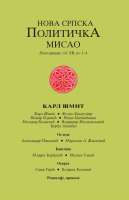Sekularizacija, suverenost i legitimnost modernog doba
Secularisation, sovereignty and the legitimacy of modern age
Author(s): Vladimir Ž. MilisavljevićSubject(s): Politics / Political Sciences
Published by: Nova srpska politička misao
Keywords: charismatic authority; legitimacy; religion; secularization; sovereignty;
Summary/Abstract: In this paper I discuss some questions raised by the debate between Carl Schmitt and Hans Blumenberg concerning the problem of legitimacy of modern times. According to Blumenberg, the contemporary discourse on “secularization”, which describes modern value systems, norms or institutions as a result of transposition of religious contents onto the worldly plan, constitutes one of the most common argumentative strategies of calling into question the autonomy of modernity. Blumenberg considers Schmitt’s political theology, in particular his thesis that the modern concept of sovereignty originates from the medieval theological conception of miracle, as the strongest form of this kind of discourse. In the first part of the text, I discuss Weber’s place in the controversy between Schmitt and Blumenberg. I argue that the central features of Schmitt’s doctrine of sovereignty can be best explained when we observe its kinship with Max Weber’s sociology, particularly with his theory of charismatic authority. Furhermore, I argue that Schmitt’s political decisionism can be understood as a consequence of Weber’s failure to give an account of the legitimacy of modern times. The second part of the text challenges the widespread conviction, which Blumenberg seems to share, that Hegel’s philosophy represents the historical prototype of contemporary theories of secularization.
Journal: Nova srpska politička misao
- Issue Year: 12/2005
- Issue No: 01+04
- Page Range: 117-135
- Page Count: 17
- Language: Serbian
- Content File-PDF

